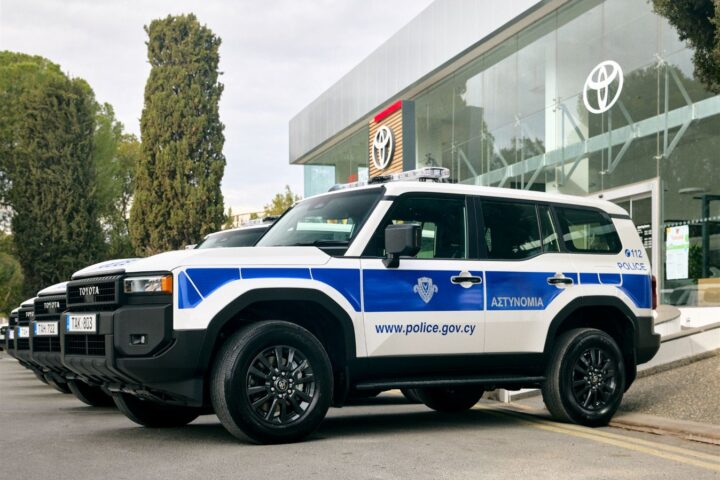German Chancellor Angela Merkel said today in Nicosia that it is important to solve the Cyprus problem in order to overcome problems like Turkey’s accession negotiations, or EU-NATO relations.
Merkel was speaking to journalists, after her meeting with the President of the Republic Demetris Christofias.
Asked to comment whether Cyprus’ occupation by Turkey is compatible with the country’s EU accession, Merkel, speaking trough an interpreter, said that “we are aware of the existing difficulties and this is the reason why we placed so many restrictions in the accession negotiations”.
“As long as Turkey is not implementing the Ankara Protocol, no negotiating chapters can be closed or have been closed. Moreover, there are eight chapters that can not even open” she said.
Merkel also added that emotionally, she is aware of what a country’s division means, but said that she doubted the German reunification model could be implemented in Cyprus, due to the many existing differences. She said, however, that the German experience could prove valuable, once negotiations mature.
Asked on the efforts to exploit natural gas resources, President Christofias said that Cyprus is an independent and sovereign stare, and a member of the UN and the EU.
It is Cyprus’ sovereign right, he added, to conduct, according to the 1982 UN Law of the Sea Convention, research on natural gas within its Exclusive Economic Zone, which it has demarcated together with its neighboring countries.
He also noted that Turkey cannot hold Cyprus as a hostage, preventing the country from benefiting from its natural resources.
The President said that Turkey is harassing Cypriot research efforts, sending planes and warships in the area, while it asks for the EU negotiation chapter on energy to open.
Turkey has to terminate the war games if it wants to be regarded as a modern state and enter into the EU family, he added.
The German Chancellor said that in order to solve EU-NATO relations, the Cyprus issue must be resolved.
She also said that negotiations need to proceed for the sake of Cyprus’ reunification, and expressed her gratitude to President Christofias for helping to draft a strategic plan of cooperation between the EU’s Common Foreign and Security Policy and NATO.
The solution of the Cyprus problem is not only to the interest of Cyprus, but also to the interest of Germany, the EU, the UN and NATO she said.
President Christofias thanked at this point the Chancellor, for supporting his proposal during the last European Council in December, to base EU and NATO relations on UN resolutions and principles.
Speaking on Eurozone developments and Portugal’s efforts, Merkel said that the country has undertaken significant measures but their implementation needs time.
President Christofias added that the crisis many countries like Spain, Portugal, Greece and Ireland are facing is a threat to all and said that the EU is developing the mechanisms to tackle financial instability, especially for its Eurozone members.
Cyprus has been divided since 1974, when Turkish troops invaded and occupied its northern third. UN-led peace talks are currently underway between President Christofias and Turkish Cypriot leader Dervis Eroglou, in an effort to find a negotiated settlement that will unite the country under a federal roof.
Turkey refuses to open its ports and airspace to Cypriot vessels and aircraft, contrary to its obligations, as defined in the Additional Protocol, extending the Ankara Protocol to all new Member States, including the Republic of Cyprus. As a result, in December 2006, the European Council suspended the negotiation of eight chapters, until Turkey complies with its obligations.
Turkey needs to implement the Protocol to continue EU negotiations Nicosia, Jan 11 (CNA) — German Chancellor Angela Merkel said today in Nicosia that it is important to solve the Cyprus problem in order to overcome problems like Turkey’s accession negotiations, or EU-NATO relations.
Merkel was speaking to journalists, after her meeting with the President of the Republic Demetris Christofias.
Asked to comment whether Cyprus’ occupation by Turkey is compatible with the country’s EU accession, Merkel, speaking trough an interpreter, said that “we are aware of the existing difficulties and this is the reason why we placed so many restrictions in the accession negotiations”.
“As long as Turkey is not implementing the Ankara Protocol, no negotiating chapters can be closed or have been closed. Moreover, there are eight chapters that can not even open” she said.
Merkel also added that emotionally, she is aware of what a country’s division means, but said that she doubted the German reunification model could be implemented in Cyprus, due to the many existing differences. She said, however, that the German experience could prove valuable, once negotiations mature.
Asked on the efforts to exploit natural gas resources, President Christofias said that Cyprus is an independent and sovereign stare, and a member of the UN and the EU.
It is Cyprus’ sovereign right, he added, to conduct, according to the 1982 UN Law of the Sea Convention, research on natural gas within its Exclusive Economic Zone, which it has demarcated together with its neighboring countries.
He also noted that Turkey cannot hold Cyprus as a hostage, preventing the country from benefiting from its natural resources.
The President said that Turkey is harassing Cypriot research efforts, sending planes and warships in the area, while it asks for the EU negotiation chapter on energy to open.
Turkey has to terminate the war games if it wants to be regarded as a modern state and enter into the EU family, he added.
The German Chancellor said that in order to solve EU-NATO relations, the Cyprus issue must be resolved.
She also said that negotiations need to proceed for the sake of Cyprus’ reunification, and expressed her gratitude to President Christofias for helping to draft a strategic plan of cooperation between the EU’s Common Foreign and Security Policy and NATO.
The solution of the Cyprus problem is not only to the interest of Cyprus, but also to the interest of Germany, the EU, the UN and NATO she said.
President Christofias thanked at this point the Chancellor, for supporting his proposal during the last European Council in December, to base EU and NATO relations on UN resolutions and principles.
Speaking on Eurozone developments and Portugal’s efforts, Merkel said that the country has undertaken significant measures but their implementation needs time.
President Christofias added that the crisis many countries like Spain, Portugal, Greece and Ireland are facing is a threat to all and said that the EU is developing the mechanisms to tackle financial instability, especially for its Eurozone members.
Cyprus has been divided since 1974, when Turkish troops invaded and occupied its northern third. UN-led peace talks are currently underway between President Christofias and Turkish Cypriot leader Dervis Eroglou, in an effort to find a negotiated settlement that will unite the country under a federal roof.
Turkey refuses to open its ports and airspace to Cypriot vessels and aircraft, contrary to its obligations, as defined in the Additional Protocol, extending the Ankara Protocol to all new Member States, including the Republic of Cyprus. As a result, in December 2006, the European Council suspended the negotiation of eight chapters, until Turkey complies with its obligations.







